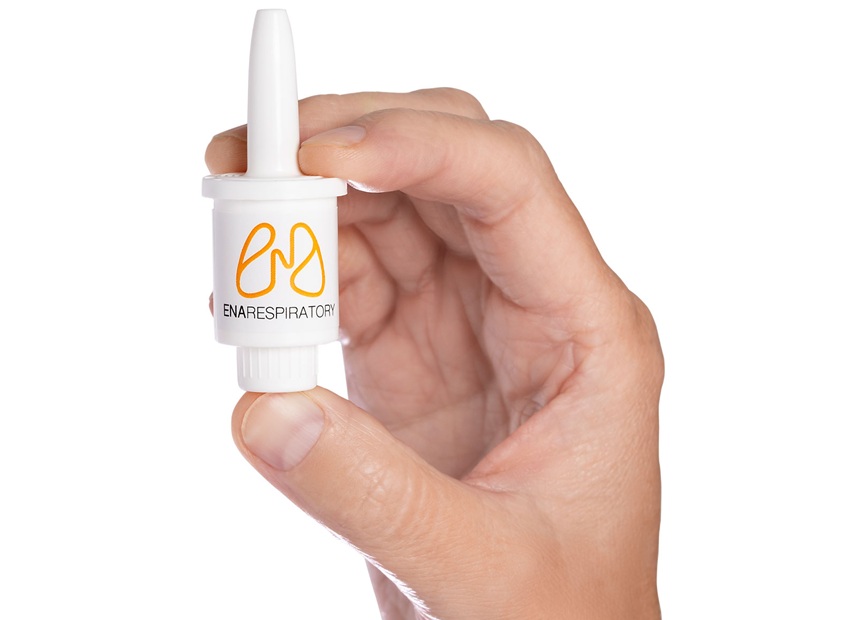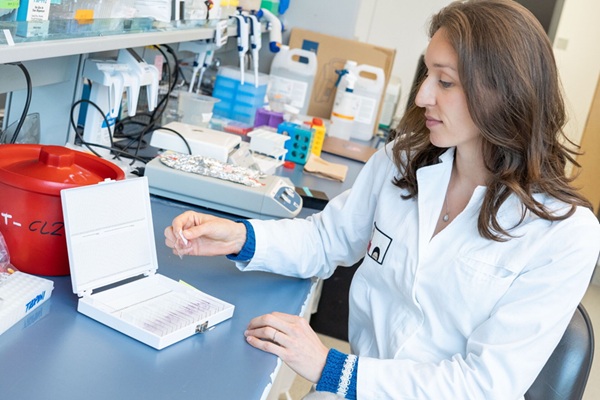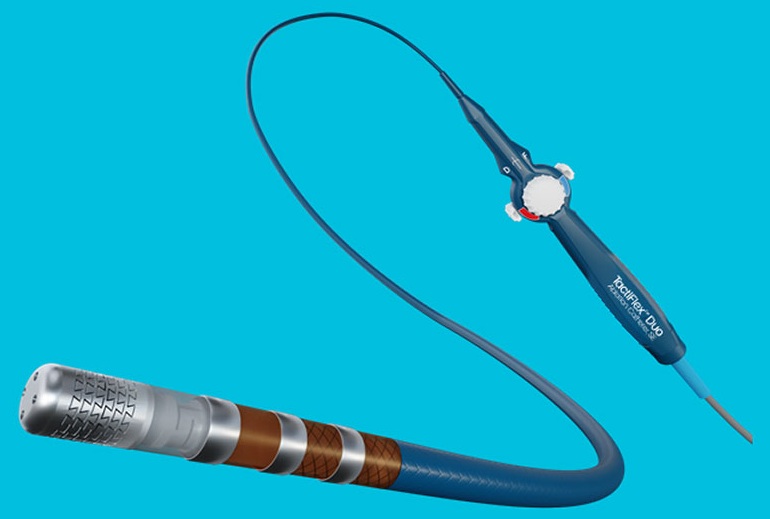Human Physicians Outperform Diagnostic Apps by Wide Margin
|
By HospiMedica International staff writers Posted on 26 Oct 2016 |
Doctor’s diagnoses remain vastly superior to those of 23 commonly used symptom-checker apps, according to a new study.
Researchers at Harvard Medical School (HMS; Boston, MA, USA), the Human Diagnosis Project (Washington, DC, USA), and other institutions conducted a study in which 234 internal medicine physicians evaluated 45 clinical cases of both common and uncommon conditions, with varying degrees of severity. For each scenario, the physicians had to identify the most likely diagnosis along with two additional possible diagnoses. Each clinical vignette was solved by at least 20 physicians.
The researchers then compared the diagnostic accuracy of the physicians with computer algorithm symptom checker applications. The results showed that the physicians outperformed the symptom-checker apps, listing the correct diagnosis first 72% of the time, compared with 34% of the time for the digital platforms. In addition, 84% of clinicians listed the correct diagnosis in the top three possibilities, compared with 51% for the digital symptom-checkers.
The difference between physician and computer app performance was most dramatic in more severe and less common conditions; it was smaller for less acute and more common illnesses. But despite outperforming the apps by a wide margin, physicians still made errors in about 15% of cases. According to the researchers, developing computer-based algorithms to be used in conjunction with human decision-making may help further reduce diagnostic errors. The study was published on October 10, 2016, in JAMA Internal Medicine.
“While the computer programs were clearly inferior to physicians in terms of diagnostic accuracy, it will be critical to study future generations of computer programs that may be more accurate,” said senior author associate professor of health care policy Ateev Mehrotra, PhD, of HMS. “Clinical diagnosis is currently as much art as it is science, but there is great promise for technology to help augment clinical diagnoses. That is the true value proposition of these tools.”
Related Links:
Harvard Medical School
Human Diagnosis Project
Researchers at Harvard Medical School (HMS; Boston, MA, USA), the Human Diagnosis Project (Washington, DC, USA), and other institutions conducted a study in which 234 internal medicine physicians evaluated 45 clinical cases of both common and uncommon conditions, with varying degrees of severity. For each scenario, the physicians had to identify the most likely diagnosis along with two additional possible diagnoses. Each clinical vignette was solved by at least 20 physicians.
The researchers then compared the diagnostic accuracy of the physicians with computer algorithm symptom checker applications. The results showed that the physicians outperformed the symptom-checker apps, listing the correct diagnosis first 72% of the time, compared with 34% of the time for the digital platforms. In addition, 84% of clinicians listed the correct diagnosis in the top three possibilities, compared with 51% for the digital symptom-checkers.
The difference between physician and computer app performance was most dramatic in more severe and less common conditions; it was smaller for less acute and more common illnesses. But despite outperforming the apps by a wide margin, physicians still made errors in about 15% of cases. According to the researchers, developing computer-based algorithms to be used in conjunction with human decision-making may help further reduce diagnostic errors. The study was published on October 10, 2016, in JAMA Internal Medicine.
“While the computer programs were clearly inferior to physicians in terms of diagnostic accuracy, it will be critical to study future generations of computer programs that may be more accurate,” said senior author associate professor of health care policy Ateev Mehrotra, PhD, of HMS. “Clinical diagnosis is currently as much art as it is science, but there is great promise for technology to help augment clinical diagnoses. That is the true value proposition of these tools.”
Related Links:
Harvard Medical School
Human Diagnosis Project
Channels
Artificial Intelligence
view channelCritical Care
view channel
Intranasal Spray to Prevent Illnesses from Respiratory Viruses
Respiratory viruses such as influenza and COVID-19 hospitalize more than one million people in the U.S. each year, with many infections spreading through close contact in households, schools, and workplaces.... Read more
AI Risk Prediction Tool Improves Treatment of Cancer Patients after Heart Attack
Cancer patients who experience a heart attack face a uniquely dangerous combination of risks, including higher chances of death, bleeding, and repeat cardiac events. Because of this complexity, they have... Read moreSurgical Techniques
view channel
New Classification System Brings Clarity to Brain Tumor Surgery Decisions
Low-grade brain tumors known as IDH-mutant gliomas (CNS WHO grade 2) are life-threatening despite their slow growth. Surgeons must balance maximal tumor removal against the risk of neurological deficits,... Read more
Boengineered Tissue Offers New Hope for Secondary Lymphedema Treatment
The rising global incidence of cancer has led to an increasing number of surgeries involving lymph node removal. While these procedures are critical for cancer staging and preventing metastatic spread,... Read morePatient Care
view channel
Revolutionary Automatic IV-Line Flushing Device to Enhance Infusion Care
More than 80% of in-hospital patients receive intravenous (IV) therapy. Every dose of IV medicine delivered in a small volume (<250 mL) infusion bag should be followed by subsequent flushing to ensure... Read more
VR Training Tool Combats Contamination of Portable Medical Equipment
Healthcare-associated infections (HAIs) impact one in every 31 patients, cause nearly 100,000 deaths each year, and cost USD 28.4 billion in direct medical expenses. Notably, up to 75% of these infections... Read more
Portable Biosensor Platform to Reduce Hospital-Acquired Infections
Approximately 4 million patients in the European Union acquire healthcare-associated infections (HAIs) or nosocomial infections each year, with around 37,000 deaths directly resulting from these infections,... Read moreFirst-Of-Its-Kind Portable Germicidal Light Technology Disinfects High-Touch Clinical Surfaces in Seconds
Reducing healthcare-acquired infections (HAIs) remains a pressing issue within global healthcare systems. In the United States alone, 1.7 million patients contract HAIs annually, leading to approximately... Read moreBusiness
view channel
Medtronic and Mindray Expand Strategic Partnership to Ambulatory Surgery Centers in the U.S.
Mindray North America and Medtronic have expanded their strategic partnership to bring integrated patient monitoring solutions to ambulatory surgery centers across the United States. The collaboration... Read more
FDA Clearance Expands Robotic Options for Minimally Invasive Heart Surgery
Cardiovascular disease remains the world’s leading cause of death, with nearly 18 million fatalities each year, and more than two million patients undergo open-heart surgery annually, most involving sternotomy.... Read more
WHX in Dubai (formerly Arab Health) to debut specialised Biotech & Life Sciences Zone as sector growth accelerates globally
World Health Expo (WHX) in Dubai, formerly Arab Health, which takes place from 9-12 February 2026 at the Dubai Exhibition Centre (DEC), has officially announced the launch of a new dedicated Biotech &... Read more















